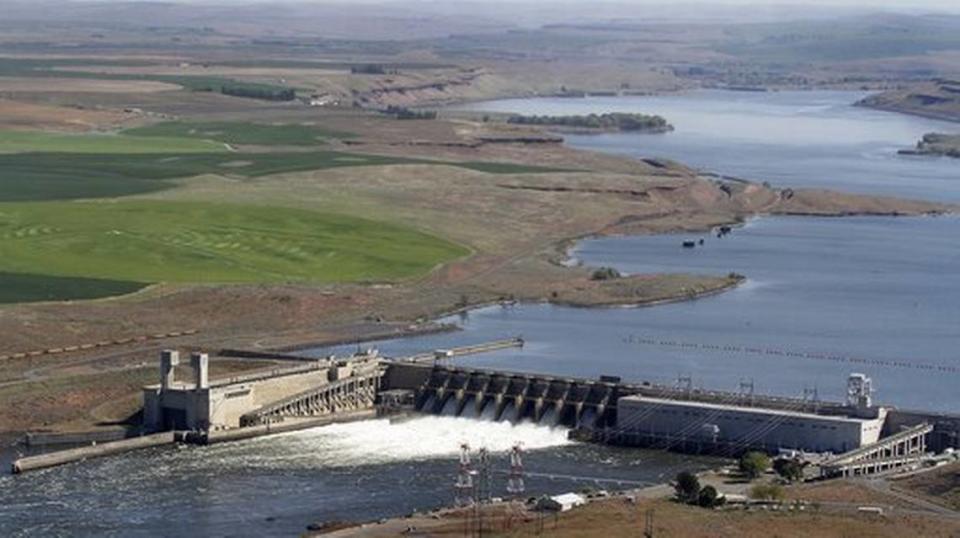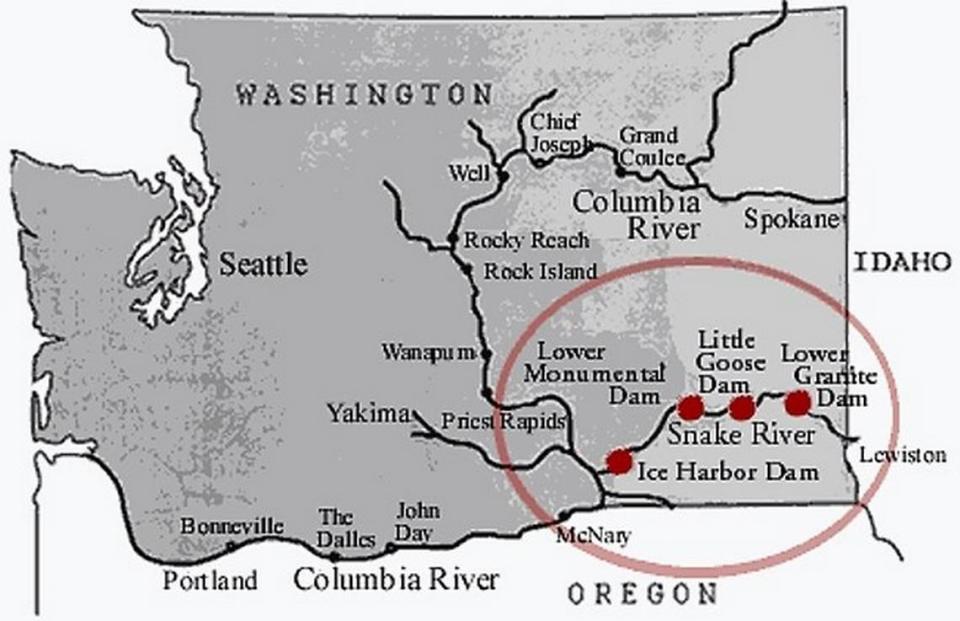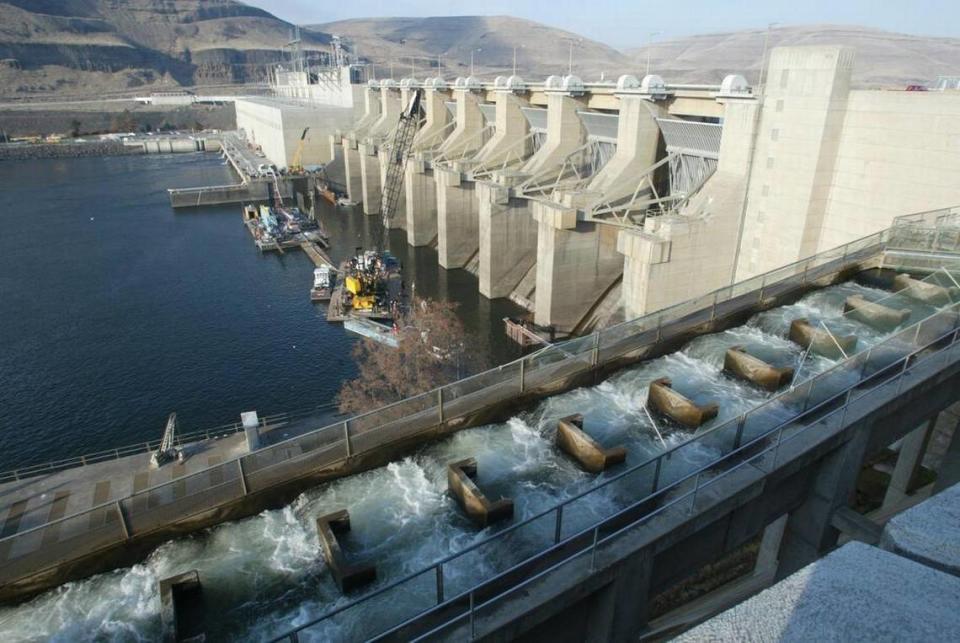9 new bills filed to reverse Biden administration’s Snake River dams agreement
- Oops!Something went wrong.Please try again later.
Rep. Dan Newhouse, R-Wash., has filed a package of nine bills to reverse parts of a new agreement that he sees as the de facto breaching of the lower Snake River dams and to remind the White House who has authority over the dams.
“I have consistently reminded the Biden administration that the authority over the lower Snake River dams remains in the hands of Congress,” Newhouse said.
“This package is not only a staunch reinforcement of that fact, but a testament to our commitment to protect these critical pieces of infrastructure,” he said.
The package would prohibit breaching the four Snake River hydroelectric dams in Eastern Washington if certain power production replacement goals, including for reliability and consumer costs, could not be met or if breaching would make the river less navigable for barging or increase the cost of moving products on the river.
It also would give the Bonneville Power Administration authority over changes to how much water is spilled over the dams rather than used to produce electricity, require acoustic deterrence of sea lions feeding on salmon near the Bonneville Dam and find alternate ways to pay for fish and wildlife programs now paid for by users of electricity from the dams.

The agreement announced by the Biden administration in December halts mediation over the Columbia River System Operations, including the lower Snake River dams for up to a decade and provides more than $1 billion for wild fish restoration.
The agreement was negotiated behind closed doors by the White House Council on Environmental Quality with the states of Washington and Oregon and four Northwest tribes.
The agreement does not call for breaching the four Eastern Washington dams from from Ice Harbor Dam near Pasco to Lower Granite Dam near Lewiston, Idaho.
But it mentions breaching 68 times, Newhouse pointed out. That makes clear the goal of the administration, despite Congress holding authority over the dams, he said.
Newhouse also is concerned that requiring more water to be spilled over the dams could make the dams functionally useless and cause energy prices to skyrocket.
Spill helps juvenile salmon pass the dams unless so much water is spilled that gases in the water — including oxygen, carbon dioxide and nitrogen — kill the fish.
The package of bills proposed by Newhouse has cosponsors from several Republican representatives in Washington, Idaho, Oregon and Montana.

Various bills in the package also have support from organizations that include the Public Power Council, the National Rural Electric Cooperative Association, the Port of Benton, Cowlitz PUD and the Pacific Northwest Waterways Association.
Should Newhouse succeed in moving the bills through the House, they could face a tough road in the Democrat-majority Senate.
9 Newhouse bills
Here are what the bills proposed to protect the lower Snake River dams would do:
▪ Prohibit breaching of federal hydroelectric dams if replacement energy production, such as wind or solar farms, would require additional acreage of more than 5%.
▪ Prohibit breaching federal dams if it would result in carbon emissions increasing by more than 10% such as by shipping by truck rather than barge; if it would make the river less navigable for commercial interests, such as barging companies; or it would increase the price of products currently barged on rivers by at least 10%.

▪ Direct the Department of Energy to develop fish and wildlife program funding alternatives to mitigate the cost to Bonneville Power Administration ratepayers. The BPA Fish and Wildlife Program now improves habitat, builds hatcheries and boosts hatchery fish production and improves scientific knowledge through research.
▪ Require the Army Corps of Engineers to acquire acoustic sound technology to deter sea lions that feast on endangered salmon above and below the Bonneville Dam on the Columbia River.
▪ Prohibit the Corps from retiring an energy generation source, such as a hydroelectric dam, if it would raise electric rates and decrease regional energy reliability by more than 10%.
▪ Direct the U.S. comptroller general to prepare a report to Congress on the responsibilities and practices of the White House Council on Environmental Quality.
▪ Require BPA approval for the amount of water to be spilled over the dams, rather than used to produce electricity.

The other two bills are resolutions saying that hydropower is vital to energy development and disapproving of the agreement negotiated by the Biden administration.
Republican cosponsors for some or all of the bills include Cathy McMorris Rodgers of Washington; Cliff Bentz of Oregon; Russ Fulcher of Idaho; and Matt Rosendale and Ryan Zinke, both of Montana.

